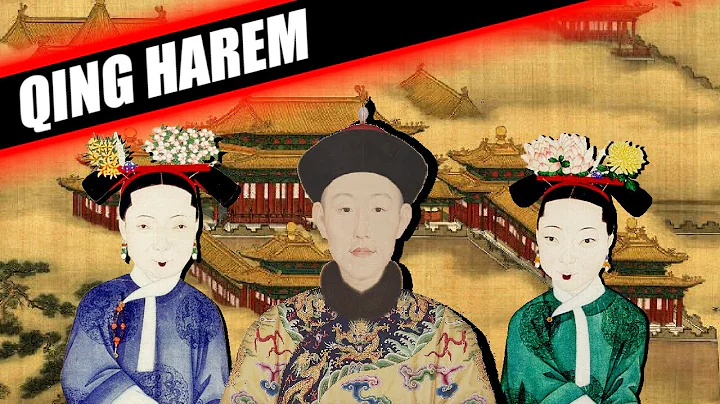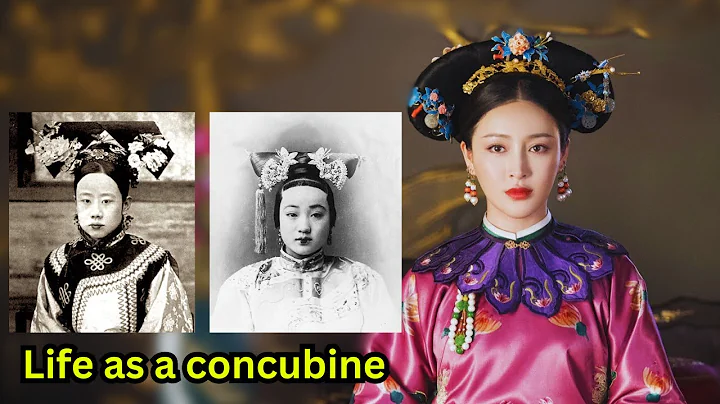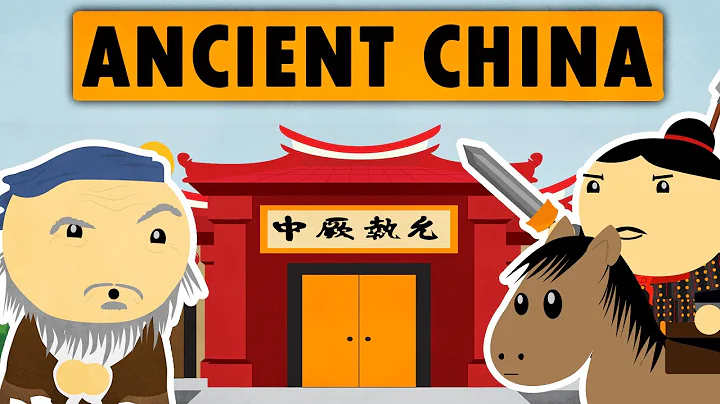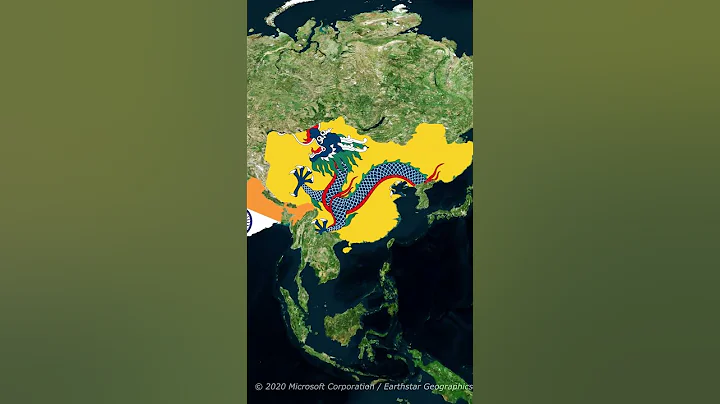Recently, a reader sent a private message asking what the specific criteria were for a Qing Dynasty prince to be granted the title of Prince of Jin? The imperial censor consulted the relevant documents and found no relevant institutional regulations. However, judging from the situation of the Qing Dynasty, there are traces to follow for the prince to become a prince.

There are different reference standards for the award of princes and princes in Jin Dynasty in different periods, which are generally divided into two stages: before the Kangxi Dynasty, military merit was used to determine titles; after the Kangxi Dynasty, the emperor's personal preferences were used as the standard.
Basic overview of the prince's title in the early Qing Dynasty
Taizu Nurhaci started with thirteen pairs of armors. After many years of war, he unified the Jurchen tribes and pointed his sword outside the pass. Manchuria's political power relied on archery, horseback riding, and archery. Therefore, whether they were descendants of the clan or nobles with different surnames, the criteria for ennobling them were based on military merit.
During the Mandate of Heaven, a complete system of enfeoffment of titles had not yet been formed. At that time, "Baylor" was the most respected person except Khan. Baylor can be divided into ordinary Baylor and "big Baylor". The four major Baylors we usually call, namely Daishan , Amin , Mang Gurtai , Huang Tai Chi , are Aixinjueluo's The most distinguished military figure in the family.
The name "Prince" first appeared in the Chongde period. After Huang Taiji changed the Yuan Dynasty and became emperor, the clan titles were initially determined and divided into Prince Heshuo, Prince Duoluo, Duoluobele, Gushan Beizi and Town. Guogong , Fu Guogong, etc.

Chongde conferred the title of six princes in one go in the early years. All those who were conferred the title of prince had one characteristic: before, they were all the lords of the Eight Banners . Princes Ruli, Daishan and Yuetuo, were in charge of the two red flags, Prince Rui, Dorgon, and Prince Duduo were in charge of the two white flags, Prince Zheng, Jierharang, the blue flag, and Prince Su, Hauge. is blue flag . It can be seen that during the Chongde period, clans that were not the banner lord were not qualified to be crowned Prince Heshuo.
After the Qing Dynasty entered the customs and established its capital in Beijing, they launched a campaign to unify the Central Plains for more than ten years. During this period, the criteria for becoming a prince in Jin Dynasty were still mainly based on military merit. In addition to the six princes who were enfeoffed during the Chongde period, there were also Prince Duan Boluo, Prince Jing Nikan, Prince Ying Aji, and Prince ZhuangShuosai.
The first and second batch of enfeoffed princes, plus several enfeoffed clans and princes, were called the "founding kings". Eight of them were designated as hereditary and irreplaceable " irons" during the Qianlong Dynasty. Hat King ".

The most prominent feature of the early Qing Dynasty was to determine titles based on military merit. Therefore, it is not difficult to find that among the sixteen sons of Nurhaci, only Daishan, Dorgon, Azige and Duduo were named princes; Among Huang Taiji's eleven sons, only three, Hauge, Shuosei and Bomuboguoer, were classified as princes. Generally speaking, in the three dynasties of Taizu, Taizong and Shizu, it was not easy for the princes to become princes.
A basic overview of the enfeoffment of princes in the Kangxi Dynasty
After entering the Kangxi Dynasty, with the completion of the unification of the dynasty, the princes of the country's peace no longer had many opportunities to make contributions on the battlefield. During this period, the enfeoffment system based on military merit had no substantial significance. Therefore, the emperor's personal preferences and the prince's talents became the main criteria for Jin to be crowned a prince.
After the middle period of Kangxi, the princes gradually grew up, and Emperor Kangxi enfeoffed the older princes. Among them, the third son of the emperor Yinzhi, the fourth son of the emperor Yinzhen, and the fifth son of the emperor Yinzhi were named princes. In fact, among the dozen princes who grew up under Emperor Kangxi, only three received the title of prince during the Kangxi Dynasty, and some princes even had no title.

The situation of the Kangxi Dynasty was quite special. Objectively speaking, Emperor Kangxi's education of the princes was successful. There were many talented people among them, such as the eighth prince , the fourteenth prince, the thirteenth prince , etc. However, the problem was that Emperor Kangxi mishandled the issue of establishing a prince, which led to the princes competing for the throne in his later years.
Many princes did not receive high-level titles due to their involvement. If Emperor Kangxi was like Yongzheng, who did not appoint a prince without knowing it, but adopted a secret system of establishing a prince, then many of Emperor Kangxi's princes would be titled princes.
Emperor Yongzheng had a small number of princes. Except for a few underage princes and the third son of the emperor, Hongshi , who was trapped in political struggles, the remaining Hongzhou and Hongzhan were divided into princes.
Emperor Qianlong had many princes, and many of them were named princes. Compared with Emperors Kangxi and Yongzheng, it was not difficult for the princes of the Qianlong Dynasty to obtain the title of prince. As long as they did not contradict Qianlong or made any major mistakes, they would generally be titled princes or princes.

Emperor Jiaqing's five sons, except for Emperor Daoguang who later succeeded him and the underage princes, were all granted the title of prince, with a 100% chance of success; among the seven adult princes of Emperor Daoguang, except for Emperor Xianfeng, three were granted the title of prince. There are three princes and three county princes, and their titles are generally very high.
After Xianfeng , the harem no longer heard the cry of babies, and there was not a single prince in the three generations of Tongzhi, Guangxu , Puyi . Therefore, during this period, there was no talk of enfeoffment among princes.

As long as the life span is long enough, the title of prince is almost certain.
Generally speaking, it has been relatively common since the Kangxi Dynasty for princes to be ennobled as princes. What is more common is that since Kangxi, all the princes of the previous dynasty, that is, the brothers of the emperor of the current dynasty, if they are still alive, will basically obtain the title of county king or above.
In fact, in the Qing Dynasty, princes were granted the title of prince, and the majority were granted the title of Jin after the new emperor succeeded to the throne. For example, after Kangxi succeeded to the throne, his three brothers were all named princes. Yongzheng's situation was special. Due to political reasons, many brothers not only were not enfeoffed, but also suffered varying degrees of retaliation.
After Jiaqing came to power, his two brothers were also named princes; Emperor Jiaqing's two sons were also promoted to princes after Daoguang succeeded to the throne. Similarly, when Xianfeng succeeded to the throne, his brothers were also promoted to princes and princes respectively. The prince.

From this point of view, no matter whether a prince in the Qing Dynasty was appreciated and favored by his father or not, as long as he lived long enough, when his brother succeeded to the throne, he would become a county prince at worst, or a prince in more cases. And if he could wait until his nephew ascended the throne, then as the uncle of the current emperor, his title of prince would be certain.





















